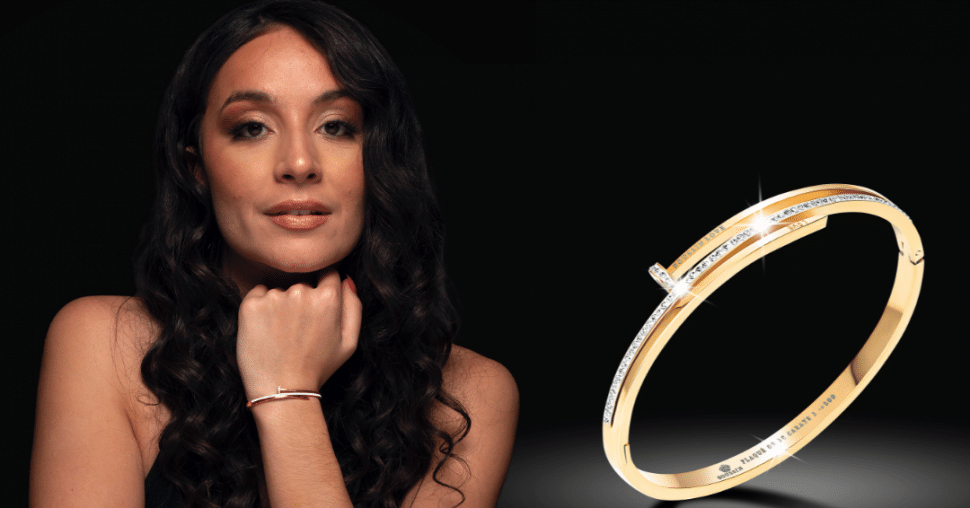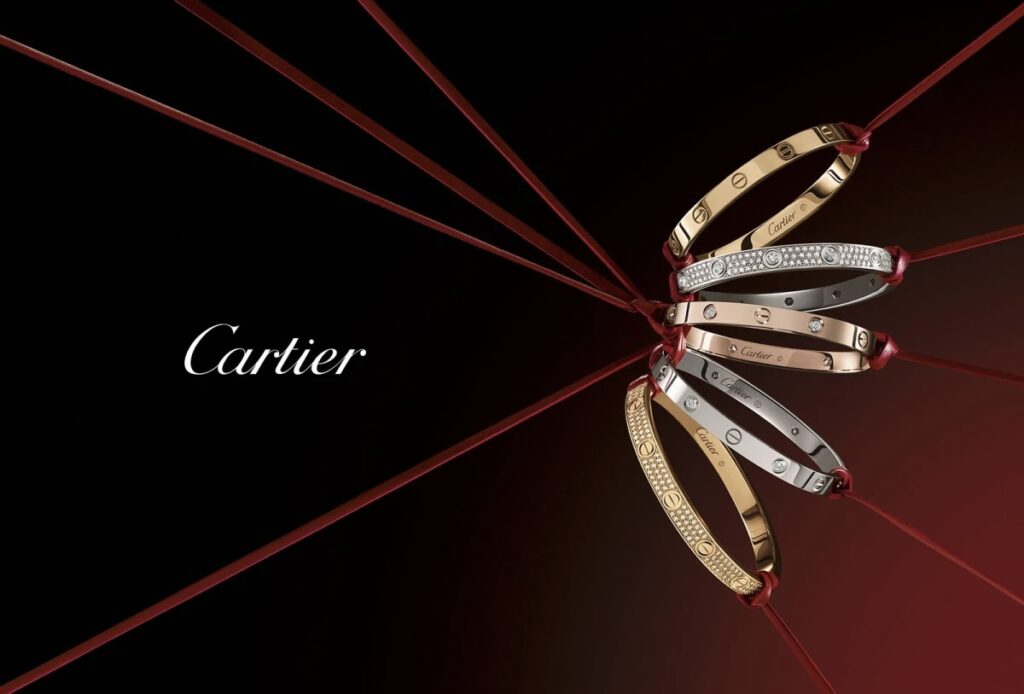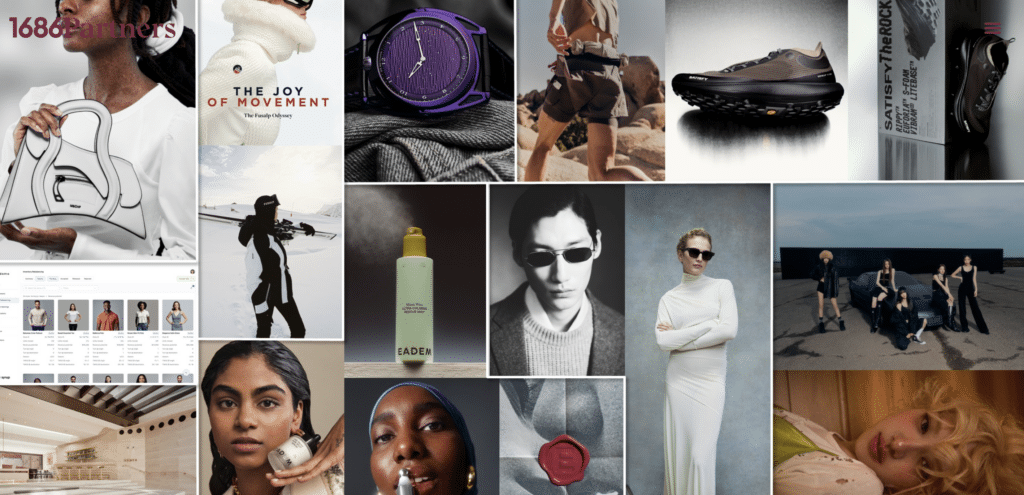On the back of a string of successful enforcement actions in France and beyond, Cartier has landed another win in its enduring bid to crack down on copycat versions of its coveted Love bracelet and corresponding branding. In a decision issued on Wednesday, as first reported by TFL, the Paris Judicial Court sided with Cartier in a trademark infringement and unfair competition case against London-based jewelry company Goussin Ltd. The ruling underscores Cartier’s robust rights in its LOVE trademarks and its ongoing efforts to maintain exclusivity in the market.
A Bit of Background: Cartier, through its entities Société Cartier and Cartier International AG, initiated legal proceedings against Goussin Ltd., alleging that the jewelry company had infringed its trademarks—namely, the “LOVE” word mark and a separate mark for a stylized version of the word LOVE, both registered in France. Cartier claimed that Goussin’s sale of bracelets under the “LOVE” name, combined with the visual similarities of the bracelet itself to Cartier’s renowned bangle, constituted trademark infringement and unfair competition.
Cartier filed suit in September 2022, arguing that despite sending a cease-and-desist letter to Goussin Ltd. in December 2021, the company refused to halt its alleged infringement.

Goussin sought to escape liability by arguing that “LOVE” is a commonly used term in fashion and jewelry, one that consumers do not perceive as an indicator of a product’s source but rather as a “message of mood.” Against that backdrop, it also maintained that it did not use the term (“GOUSSIN LOVE”) in connection with its bracelet offerings as a trademark. Not stopping there, Goussin’s counsel asserted that there was no likelihood of confusion between the two companies’ jewelry due to differences in price (Goussin is an “accessible luxury” brand) and distribution channels.
A Win for Cartier
The Paris Judicial Court sided with Cartier, finding that Goussin had infringed Cartier’s rights by reproducing and imitating its well-known “LOVE” trademark in a trademark capacity. The court determined that the word “LOVE” was used as a brand identifier for Goussin’s jewelry rather than as a mere decorative or descriptive term. Additionally, the court found a high degree of similarity between Goussin’s “LOVE” bracelets and Cartier’s designs, particularly in their styling and marketing, increasing the likelihood that consumers would be confused about the source of the Goussin bracelet.
Cartier also prevailed on its unfair competition claim, in which it argued that Goussin made misleading claims, including falsely advertising its bracelets as being patented, plated with 18K gold, and made in France. The court determined that these claims were indeed false and gave Goussin an undue competitive advantage, thereby amounting to unfair competition.

The court ordered Goussin Ltd. to pay Cartier €10,950 as compensation for trademark infringement, an additional €8,000 for moral damages related to trademark dilution, and €5,000 for unfair competition damages. It also granted Cartier a permanent injunction barring Goussin from using the term “LOVE” as a brand identifier for jewelry in France, with penalties for non-compliance, and ordered the company to disclose distribution and supply chain details to Cartier regarding the manufacturing of the infringing products.
The damages awarded by the court were relatively minimal, and the court denied Cartier’s request for a publicized ruling in newspapers and online platforms, stating that financial compensation was sufficient to make Cartier whole.
Implications for Luxury Branding, Enforcement
Perhaps more interesting than the seemingly straightforward win for Cartier is the robustness of its rights in the LOVE word mark and the corresponding stylized marks, despite Goussin’s argument that the term is commonly used in the jewelry segment. With this in mind, the court’s ruling reinforces the ability of legacy luxury brands to enforce their trademarks, even when dealing with widely recognized words such as “LOVE.”
It also highlights the risks for companies like Goussin in leveraging otherwise common language in branding, as such usage can still lead to legal pitfalls if consumers associate those elements with an established brand.
The case is Société CARTIER International AG v. Goussin Jeweler LTD, N° RG 22/10833.














